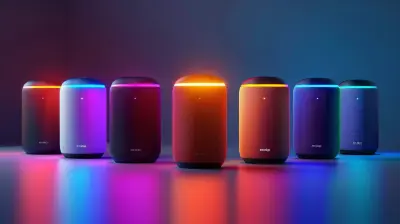How to Choose the Right Graphics Card for Your PC
10 June 2025
When it comes to building or upgrading a PC, picking the right graphics card (GPU) is one of the most important decisions you'll make. Whether you're a hardcore gamer, a video editor, or just someone looking to improve their computer’s performance, the right GPU can make all the difference. But with so many options on the market, how do you choose the best one for your needs?
Let's break it down and make this process as simple as possible.
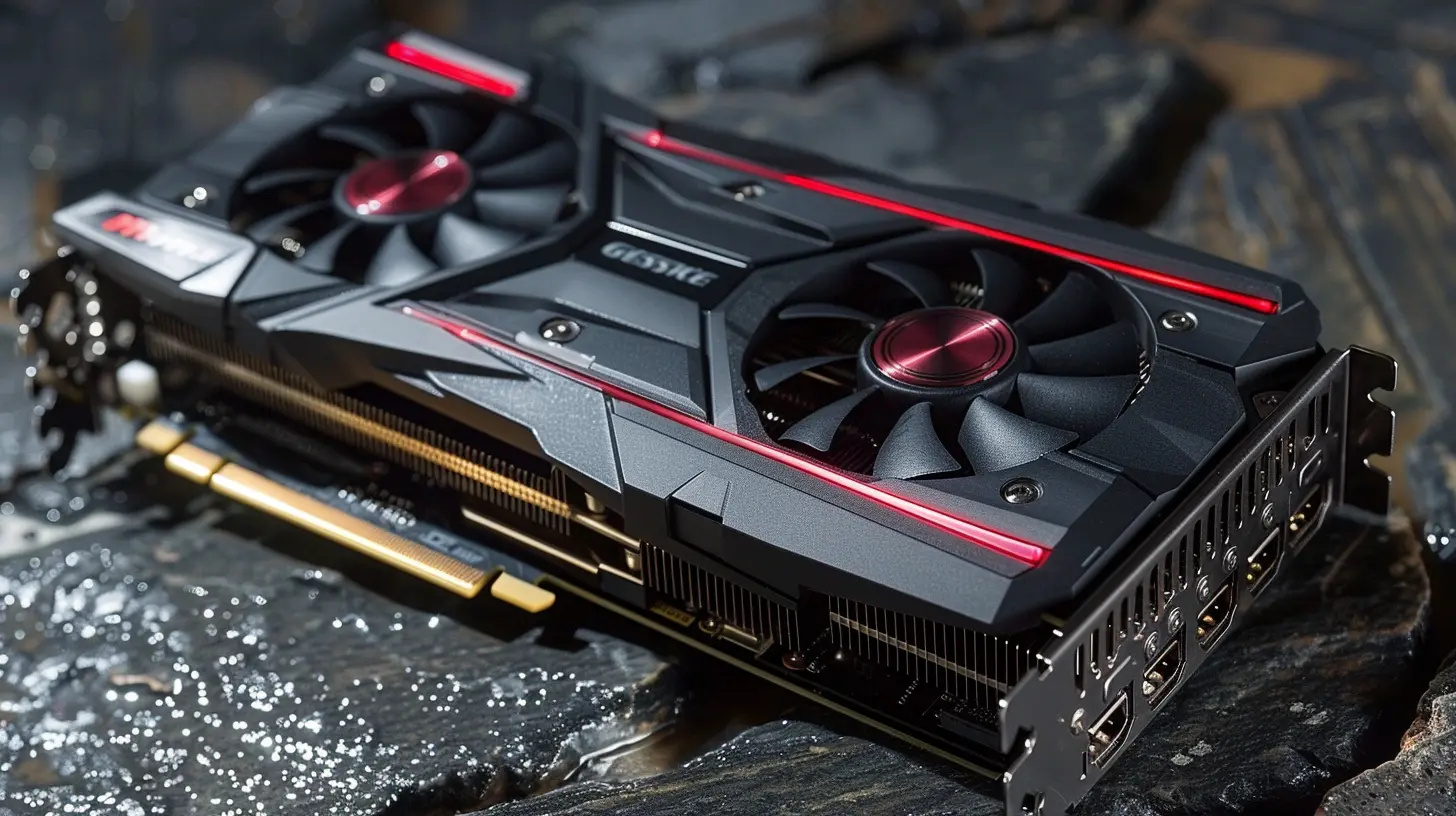
1. Understand Your Needs
Before you even start looking at specs, ask yourself: What do I need this graphics card for?- Gaming? You’ll want a powerful GPU that can handle modern games at high resolutions and frame rates.
- Content creation? If you're into video editing, 3D modeling, or graphic design, you'll need a card that excels in rendering and software acceleration.
- Casual use? If you're just browsing the web, streaming videos, or doing basic tasks, an expensive, high-end GPU isn't necessary.
Your use case determines what features and level of performance you should prioritize.
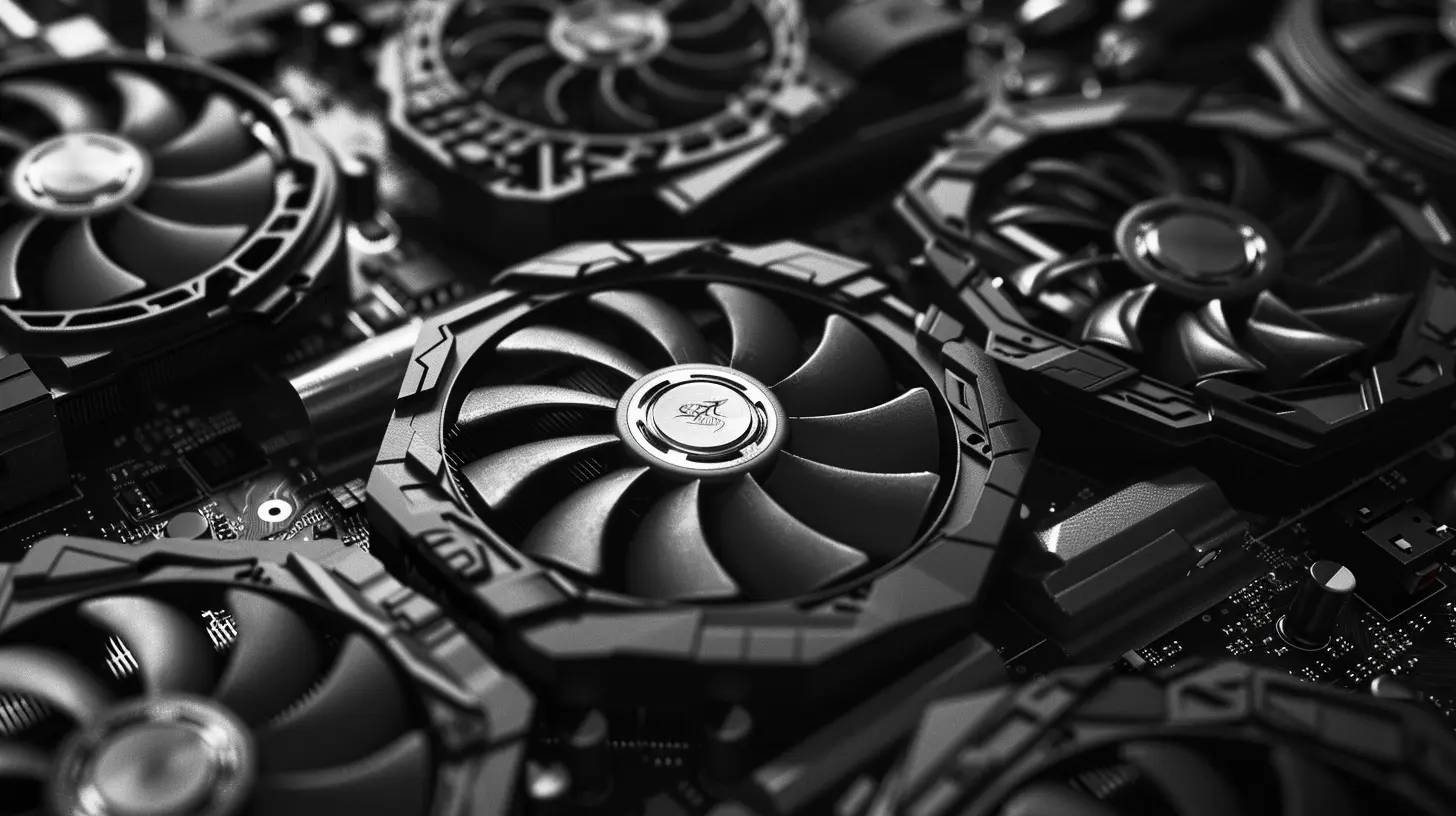
2. Know Your Budget
Like anything else in tech, graphics cards come in different price ranges:- Budget (Under $200): Good for basic gaming (1080p, low settings) and general use.
- Mid-range ($200–$500): Great for gaming at 1080p or 1440p with high settings.
- High-end ($500+): Targets 4K gaming, VR, and professional workloads like video editing.
Set a budget before shopping, but also keep in mind that spending a little extra now may save you from needing an upgrade sooner.
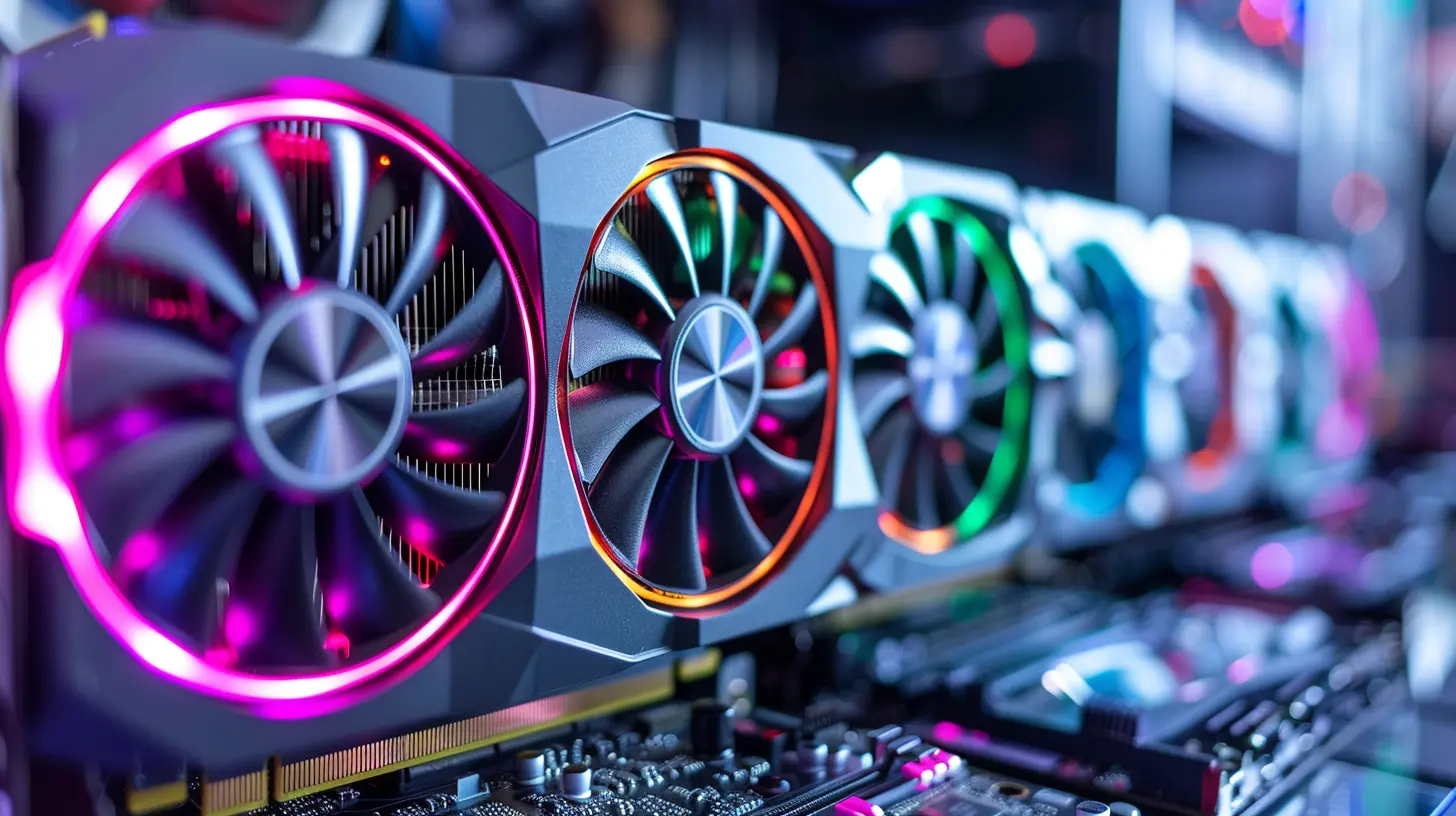
3. Check Compatibility with Your System
The last thing you want is to buy a GPU that doesn't fit in your PC or isn't fully compatible. Here are some key things to check:a) Physical Space in Your Case
Graphics cards come in different sizes, and some high-end ones are massive. Measure the space inside your case to ensure the GPU will fit properly without blocking other components.b) Power Supply Requirements
GPUs consume varying amounts of power. Check:- Wattage – Your power supply (PSU) should have enough wattage to handle your GPU plus other components.
- Power Connectors – Some GPUs require additional 6-pin or 8-pin connectors. Make sure your PSU has the right ones.
c) Motherboard Compatibility
Most modern GPUs use the PCIe x16 slot on your motherboard, but double-check that your motherboard can support the card's features such as PCIe Gen 4 or Gen 5 compatibility.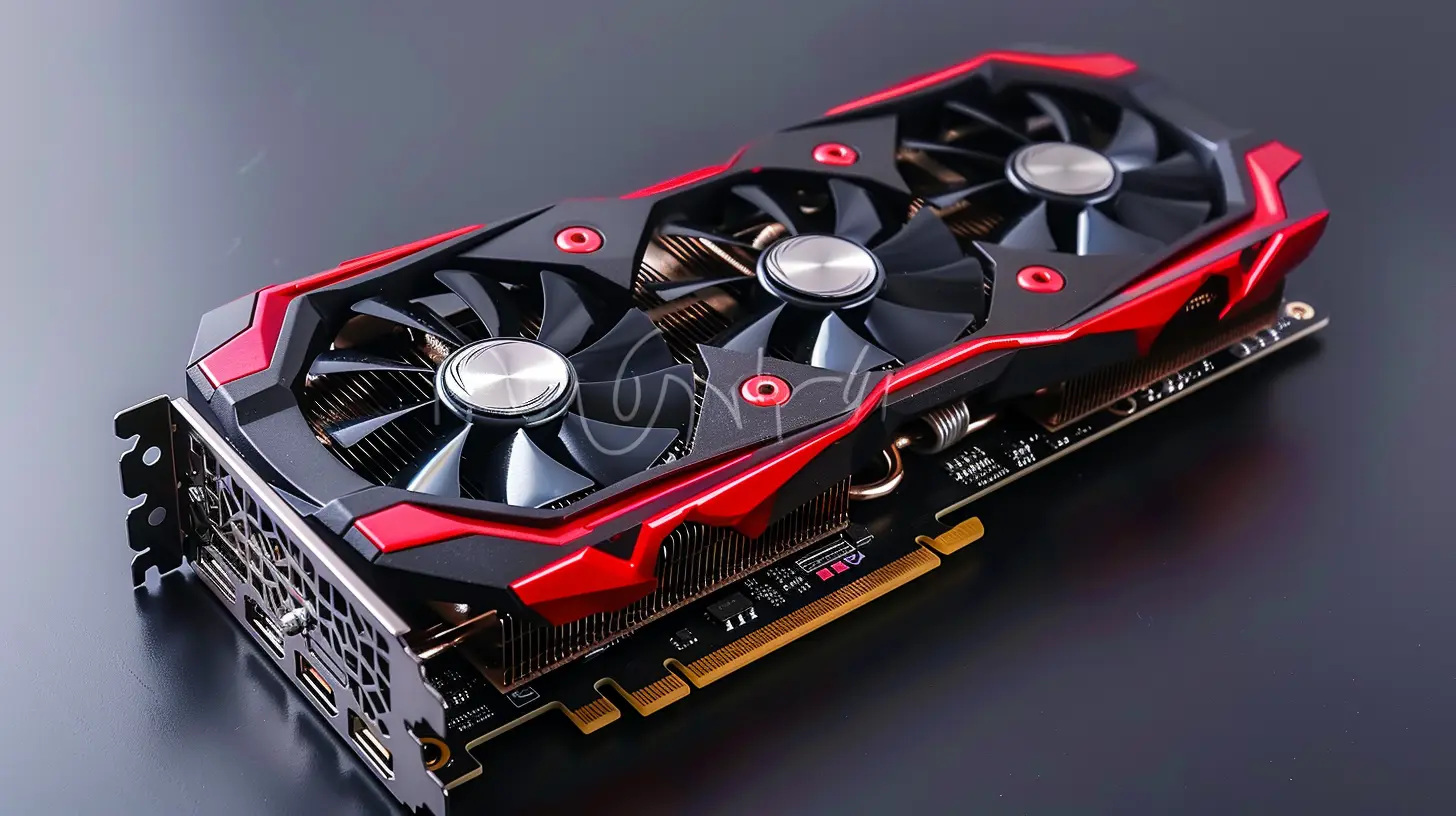
4. Consider Performance Specifications
Understanding GPU specs can make a huge difference in your decision-making. Here’s what to focus on:a) VRAM (Video Memory)
VRAM acts as the GPU’s memory, similar to RAM for your CPU. The higher the VRAM, the better it can handle high-resolution textures.- 4GB – Entry-level, good for low-end gaming.
- 6GB - 8GB – Great for 1080p gaming and moderate workloads.
- 12GB+ – Ideal for 1440p, 4K, and professional tasks.
b) Clock Speed & Cores
Higher clock speeds and more CUDA (NVIDIA) or Stream (AMD) cores help improve performance, but they’re not the only factors. Compare benchmarks instead of relying solely on specs.c) Ray Tracing & DLSS (NVIDIA) / FSR (AMD)
Ray tracing enhances lighting and reflections in games, making them look more realistic. NVIDIA’s DLSS and AMD’s FSR upscale lower resolutions with AI to improve performance. If you're into cutting-edge visuals, these features are worth considering.d) Cooling Solutions
GPUs generate heat, and efficient cooling prevents overheating. Some come with robust triple-fan solutions, while others use liquid cooling. If your case has poor airflow, opt for a GPU with a reliable cooling system.5. Team Green (NVIDIA) vs. Team Red (AMD)
When it comes to graphics cards, there are two major players: NVIDIA and AMD. Both have their strengths:- NVIDIA: Usually leads in ray tracing, DLSS, and power efficiency. Excellent for high-performance gaming and rendering.
- AMD: Often offers better price-to-performance at mid-range levels. Their FSR competes with DLSS, and they’ve improved driver support over the years.
There is no clear winner—it all depends on your budget and what features matter most to you.
6. Pay Attention to Benchmark Scores
Manufacturer specs only tell half the story. Before buying a GPU, look at benchmark tests from trusted sources. Benchmarks show real-world performance in gaming and professional applications. Some great places to check include:- YouTube reviews (Gamers Nexus, Linus Tech Tips, JayzTwoCents, etc.)
- Tech review websites (Tom’s Hardware, AnandTech, etc.)
Compare the FPS (frames per second) at the resolution and settings you prefer.
7. The Importance of Drivers & Software
While hardware is crucial, drivers and software optimizations also play a big role. NVIDIA and AMD release frequent driver updates that improve game performance.Look for:
- Reliable driver support – Frequent updates mean better game compatibility and bug fixes.
- Software features – NVIDIA’s GeForce Experience and AMD’s Adrenalin Software offer game optimizations, recording, and streaming tools.
8. Think About Future-Proofing
You don’t want to spend a fortune on a GPU and then need to replace it in a year. To ensure longevity:- Buy a card that meets or exceeds current gaming requirements.
- Get more VRAM if you plan to play at higher resolutions.
- Opt for new technologies like PCIe 4.0/5.0 and AI-powered upscaling.
Spending a little more upfront can save you from upgrading too soon.
9. New vs. Used Graphics Cards
If you're on a tight budget, you might consider a used GPU. While you can save money, be cautious:- Avoid mining cards. Cryptocurrency mining wears out GPUs faster.
- Buy from trusted sources. eBay, Reddit, or local sellers with good reputations are safer bets.
- Check return policies. Always test the card immediately and ensure it works properly.
While used GPUs are tempting, they often lack warranties and might have reduced performance due to past use.
10. Where to Buy?
Now that you've chosen the right GPU, where should you buy it?- Official sites (NVIDIA, AMD, etc.) – Reliable but often out of stock.
- Retailers (Amazon, Newegg, Best Buy, Micro Center, etc.) – Good for deals and warranties.
- Second-hand markets (eBay, Facebook Marketplace, etc.) – Risky but often cheaper.
Compare prices across multiple platforms to get the best deal.
Final Thoughts
Choosing the right graphics card for your PC doesn’t have to be overwhelming. By understanding your needs, setting a budget, checking compatibility, and comparing performance, you can make a well-informed decision.Remember, the right GPU for you depends on what you plan to do with your PC. Whether you're aiming for high frame rates in games or smooth performance for creative work, finding the right balance between price and performance is key.
Now go out there and get the perfect GPU for your build!
all images in this post were generated using AI tools
Category:
Computer HardwareAuthor:

Marcus Gray
Discussion
rate this article
3 comments
Zeth McIntire
What factors should I prioritize when selecting the perfect graphics card? Curious!
June 13, 2025 at 3:41 AM

Marcus Gray
When selecting a graphics card, prioritize your budget, performance needs (gaming vs. professional work), compatibility with your system (especially power supply and space), and future-proofing for upcoming games or software.
Jinx McCracken
Great article! Choosing the right graphics card can be overwhelming, but your tips make it much easier. I love how you broke down the key factors to consider! Can't wait to upgrade my PC with your advice in mind.
June 11, 2025 at 12:29 PM

Marcus Gray
Thank you for the kind words! I'm glad you found the tips helpful. Good luck with your upgrade!
Lanae Love
Selecting the right graphics card transcends mere specifications; it embodies your unique needs and aspirations. Consider not just performance, but how it will shape your digital experiences, creativity, and connection to technology's evolving landscape.
June 11, 2025 at 4:43 AM

Marcus Gray
Absolutely! Choosing a graphics card goes beyond specs; it's about aligning with your creative goals and enhancing your overall digital experience.


